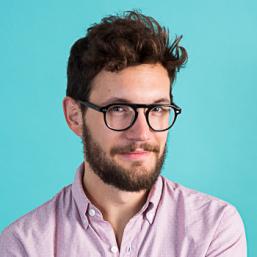
Trade off
Take Italian philosophy professor Federica Russo who left Italy for a job at the UvA one year ago. Her department paid for the first two or three extensive language courses she enrolled in; and for the first year of her contract, she was exempt from some of her teaching and research duties in order to allow her to focus on learning the language.
Now that she’s started giving some courses, however, she says her schedule is full. Instead of money for courses, what she really needs is time. Russo takes the evening course at the Institute for Dutch Language Education two times a week, from 18.30 to 21.30. And if that wasn’t enough: ‘We also have to do homework.’
But language courses aren’t enough, according to Julian Kiverstein. ‘To really master Dutch, you have to use it in everyday life’. According to the philosophy teacher, frustratingly, this never happens in the Netherlands. ‘The Dutch always answer in English,’ he says. Therefore, although he’s been living in the Netherlands for five years, he believes he still only has a passive grip on the language.
‘The Dutch tend to think that no one knows Dutch,’ professor in medieval history Guy Geltner says. ‘But if you are a little active and insist, “Please respond in Dutch”, it works. I’ve been in the Netherlands for six and a half years now and ik vind het geen probleem meer,’ Geltner says.
Geltner, who is originally from Israel, had the same approach in his teaching. He began by letting his students talk in Dutch and answered in English. It takes some effort, but ‘it’s a trade-off,’ he says. ‘In fact it wasn’t a problem for anyone,’ Geltner says. ‘I don’t know if it’s the same at all faculties,’ he adds. ‘My faculty is unique I guess: in the humanities there’re a lot of gifted linguists.’
(The article will continue under the picture below.)
Necessity
As Geltner implies, not all academics get the chance to plunge themselves into the sea of Dutch language. ‘It goes too slow,’ Kiverstein says, who works for the UvA institute for logic. ‘If the language is so important, why doesn’t the UvA organise more meetings and conferences in Dutch?’ Her colleague Francesco Berto thinks internationals will eventually find their way. ‘At the UvA, the obligation to learn Dutch can be an impediment for the first two or three years, but isn’t in the long run,’ he says.
Perhaps for Berto it went faster than for the average international. When he started as a professor two years ago, he almost immediately had to handle a lot of administrative duties. ‘They asked me to become an “opleidingsdirecteur” almost from the start,’ he says. Berto had to go to meetings that were held in Dutch and had long bureaucratic documents to read. ‘This helped me a lot to improve,’ he says.
Could an answer for the UvA, in- stead of more time for language courses, be to give responsibility instead, and in Dutch? ‘In the end, necessity is the best instrument to learn a language,’ Julian Kiverstein acknowledges.
This is part one of a series on experiences with internationalisation at the UvA. To read part two, click here: 'I've had positive experiences meeting locals.'

